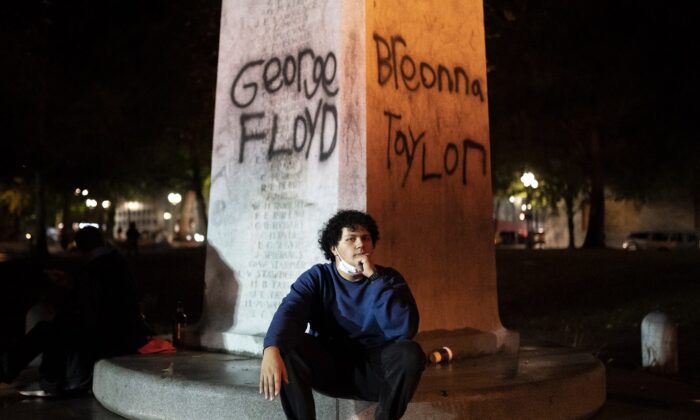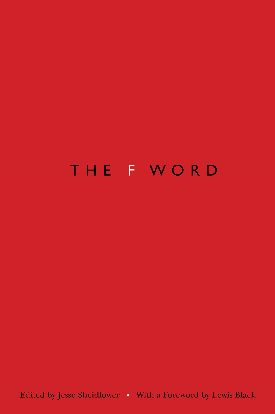Chewing the ‘Could’: From Climate Change to Breonna Taylor
/The Epoch TimesThis article appeared in The Epoch Times of September 19, 2020 under the headline: “Chewing the ‘Could’: From Climate Change to Breonna Taylor”
Here’s a headline from the Sept. 23 Washington Post: “Partisan fight over Supreme Court could affect issues and image.”
Bet you can’t wait to read that article. But the Post is by now so accustomed to treating possibility as fact that it hardly seems to know the difference anymore.
It’s one more reminder that the American media are no longer in the news business. Now, they are manufacturers. And what they manufacture is reality. The manufactured reality takes the form of a “narrative,” and news is judged to be newsworthy only if it fits the predetermined narrative.
If it doesn’t fit, it’s not news. This narrative is then built up by accretion, not just of actual events but of anticipated ones.
Try counting some time the number of occurrences of the words could, may, or might you see in newspaper headlines these days. Here’s The New York Times on Sept. 21, “Trump Could Be Investigated for Tax Fraud, D.A. Says for First Time.”
Obviously, an investigation of the hated president for tax fraud would be ideal, from the NY Times’s point of view, but, failing that, it knows its credulous readers will be willing to take a “could” for the real thing—on the Grey Lady’s credit, as it were, which is still good with them in spite of all the dud coulds predicting hopeful Trump scandals over the past four years.
The problem with the “could,” which could be used in a non-tendentious way, is that it allows events that are only possible or likely to occur, to be treated as if they have occurred or certainly will occur (like the election)—traditionally a prerequisite for real news. Or news of the real. Now they are used to create reality, rather than reflect it.
A good example of this ersatz reality is the media’s Project Fear over the COVID-19 virus, which has been largely fueled by coulds, too, from the initially inflated number of possible deaths by now-discredited professor Neil Ferguson, which caused the initial lockdown of the economies of half the world down to the present day.
Here’s The Washington Post a couple of weeks ago: “Covid-19: A bad flu season colliding with the pandemic could be overwhelming.” Like the Fat Boy in Dickens, they just want to make your flesh creep—by anticipating disasters that may never happen.
Of course, the all-time champion of this kind of could-happen reporting is climate change. Here’s the NY Times from Sept. 15: “Hurricane Sally Is a Slow-Moving Threat. Climate Change Might Be Why.” The hypothetical “Climate Change” is treated as being on a par with the existing “Slow-Moving Threat” — and, indeed, it is easy to suppose that the “threat” would hardly be worth a mention for its own sake, but only because it might fit into the favored climate change narrative.
This has been couched in terms of mights and coulds for decades—so much so, indeed, that the accumulation of hypotheticals is now thought to justify the keepers of the narrative in treating the prospective disaster they keep always before our eyes as, in fact, “fact”—tantamount to having already occurred—so that now those of us who point out that it hasn’t happened yet and so might not happen as predicted are called “climate-deniers.”
The NY Times’s “1619 Project” was another attempt at reality manufacture in aid of the latest media narrative, which goes under various names but has most recently taken to calling itself “systemic racism.”
The systemic racism narrative, a product of “critical race theory,” is based entirely on a reinterpretation of events, both historical and present-day, in which race has hitherto been thought to play little or no part.
The theorists for whom facts are only facts if they fit their theory may say that race could have played a major part, even a predominant part — as much in the minds of America’s founders as in that of a policeman who kills an unarmed black person. We don’t know. But because assuming a racially discriminatory motive fits the theory—or the narrative—better than not assuming one, they can treat the theory as fact.
That is what is meant by “systemic racism,” which is racism automatically imputed to anyone, according to the needs of those with a political or financial interest in sniffing out racism, merely for being part of “the system”—whose racism has been established a priori by the narrative.
Thus, it isn’t possible for the death of Breonna Taylor to have been a tragic accident. “Democrats decry Kentucky AG decision on Breonna Taylor as an example of systemic injustice,” headlined the Post on the morning of Sept. 24.
The so-called injustice, that is, was a very special kind of injustice. It was systemic injustice. Poor Ms Taylor was killed by “the system” (represented by the police), and the system, according to the now well-established narrative, is racist by definition — even though the Kentucky attorney general is himself a black man.
His race is as irrelevant to the protestors against “systemic injustice” as that of the cops they have been insulting and assaulting (and, in some cases, killing) for the past four months.
The big story of our revolutionary times is the migration of this media-generated process of reality-manufacture from the pages of the fast-failing daily newspapers and TV news channels to the streets of our cities today and, hopefully (from the media’s point of view), to the voting booths of America tomorrow.
But it’s not a story that you will ever see in these former “news” outlets.
Discover more from James Bowman
Subscribe to get the latest posts to your email.





